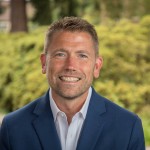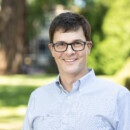Page 75 • (1,313 results in 0.023 seconds)
-
. Professional schools will accept most majors offered at PLU as long as their required pre-professional courses are taken. You should have a broad educational background including a thorough preparation in the sciences, as well as the social sciences and the humanities. The most popular majors selected by pre-health sciences students at PLU have been biology or chemistry; some students major in both. Some graduates admitted to physical therapy schools have also majored in movement studies and wellness
-
Thank you for supporting Lute Swimming! Q&A with Coach Matt SellmanWhat are some highlights of this year that shows your team succeeding, facing a challenge, and supporting each other? Our conference meet was incredible, so many fast swims, records, championships, and the team was just exuding an aura of confidence and positive attitude all weekend. Our culture put us in a great place and we took full advantage of the opportunity. What makes your student-athletes special? What makes you feel
-
, research projects) be able to develop oral presentations Level III: Anthropology 300 & 400 Level CoursesDuring their third year majors should be able to: understand a culture area, including the similarities and diversities in it look at a cultural topic in a large number of cultures throughout the world read and use scholarly literature recognize theory and method in the anthropological literature develop an integrated research paper using professional sources consistently and accurately use the
-
role on campus and student participation on these committees are essential. Each committee is tasked with specific responsibilities, which range from managing the university’s budget to meeting student campus dining needs to promoting an inclusive campus culture and many more. Interested in serving on a university committee? Email aspluvp@plu.edu for more information. Student Engagement leaders are passionate about: – creating connections between students, faculty, and staff – providing an
-
explorations of their identity, culture, and strengths, and how to weave these into an individualized education plan. Participants have many opportunities to meet healthcare providers and researchers whose work addresses reducing health disparities. SHPEP at the University of Washington utilizes a range of teaching styles including lecture, active learning techniques, discussion groups, self-reflection and virtual hands-on activities to increase student engagement and learning. This year the program will
-

the role of social status in teacher collaborative groups." Journal of Teacher Education 2019: 70(4), 347-359. Sutton, P. S., Knuth, R. "A schoolwide investment in problem-based learning." Phi Delta Kappan 2017: 99(2), 65-70. Sutton, P. S., Shouse, A. W. "More than a strategy: Building a culture of collaboration in schools." Phi Delta Kappan 2016: 49(7), 69-73. Accolades 2023 PLU Spirit of Diversity Award Biography Paul Sutton teaches sociocultural foundations of education, secondary humanities
Area of Emphasis/Expertise -

Religion Vol. 17.3, 2014: "Prophets Meet Profits: The Virtues of Christian Ecological Ethics and Free Market Environmentalism with Kathryn D. Blanchard." The Journal of the Society of Christian Ethics Vol. 34.1, 2014: "Playing God: Religion in the Geoengineering Debate with Forrest Klingerman." Bulletin of Atomic Scientists Vol. May/June, 2014: "The 'War' Against Climate Change and Christian Eco-Justice: Ethical Implications of Martial Rhetoric." Worldviews: Global Religions, Culture, and Ecology Vol
-

the role of social status in teacher collaborative groups." Journal of Teacher Education 2019: 70(4), 347-359. Sutton, P. S., Knuth, R. "A schoolwide investment in problem-based learning." Phi Delta Kappan 2017: 99(2), 65-70. Sutton, P. S., Shouse, A. W. "More than a strategy: Building a culture of collaboration in schools." Phi Delta Kappan 2016: 49(7), 69-73. Accolades 2023 PLU Spirit of Diversity Award Biography Paul Sutton teaches sociocultural foundations of education, secondary humanities
Area of Emphasis/Expertise -
Local Histories LTST 341 students visit the Sea Mar Museum of Chicano/a/Latino/a Culture Building Bridges of Hope and Solidarity Alternative Spring Break: US/Mexico Border Immersion Program Learn more Powerful Lectures and Events Dr. Alberto Ledesma speaks at the 3rd Annual César Chávez & Dolores Huerta Latino Studies Lecture Learn more Community Engaged Learning Tatiana Molinero Ceras volunteers in a dual immersion classroom at Harvard Elementary School Latino Studies MinorAs a Latino Studies
-
Polish history, one would find that Jews were first invited to come to live under the king’s protection in the 13th century. This led to Poland becoming a relatively safe haven for Jews for centuries. It also meant that Poland had one of the largest Jewish populations in all of Christian-dominated Europe. Life was full and Jews were part of the very fabric of Polish culture and society. Throughout the 19th and 20th centuries, Jews in Poland witnessed an upsurge in persecution and other antisemitic
Powell-Heller Holocaust Education Conference12180 Park Avenue South, Tacoma, WA 98447-0003
Do you have any feedback for us? If so, feel free to use our Feedback Form.


